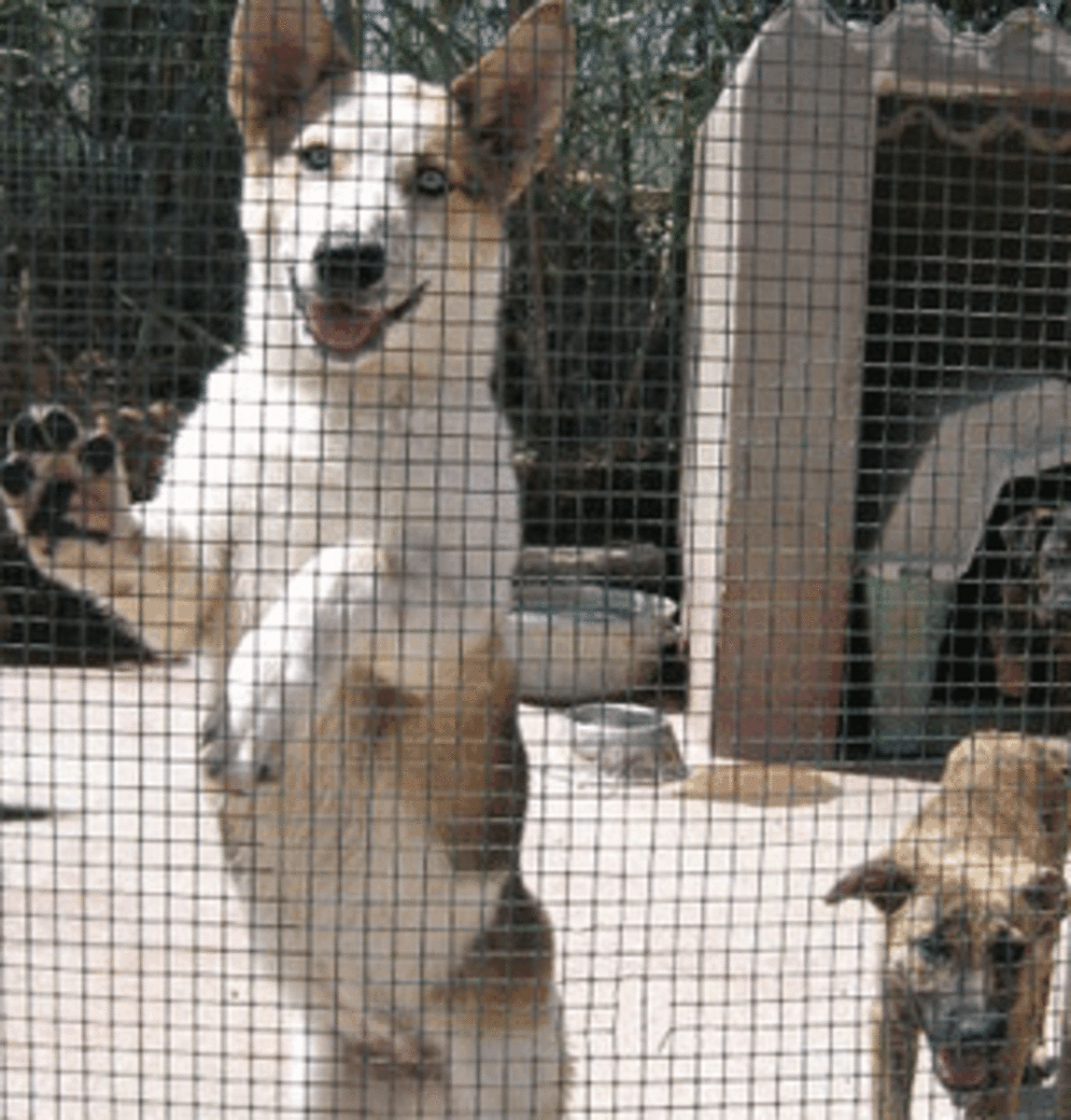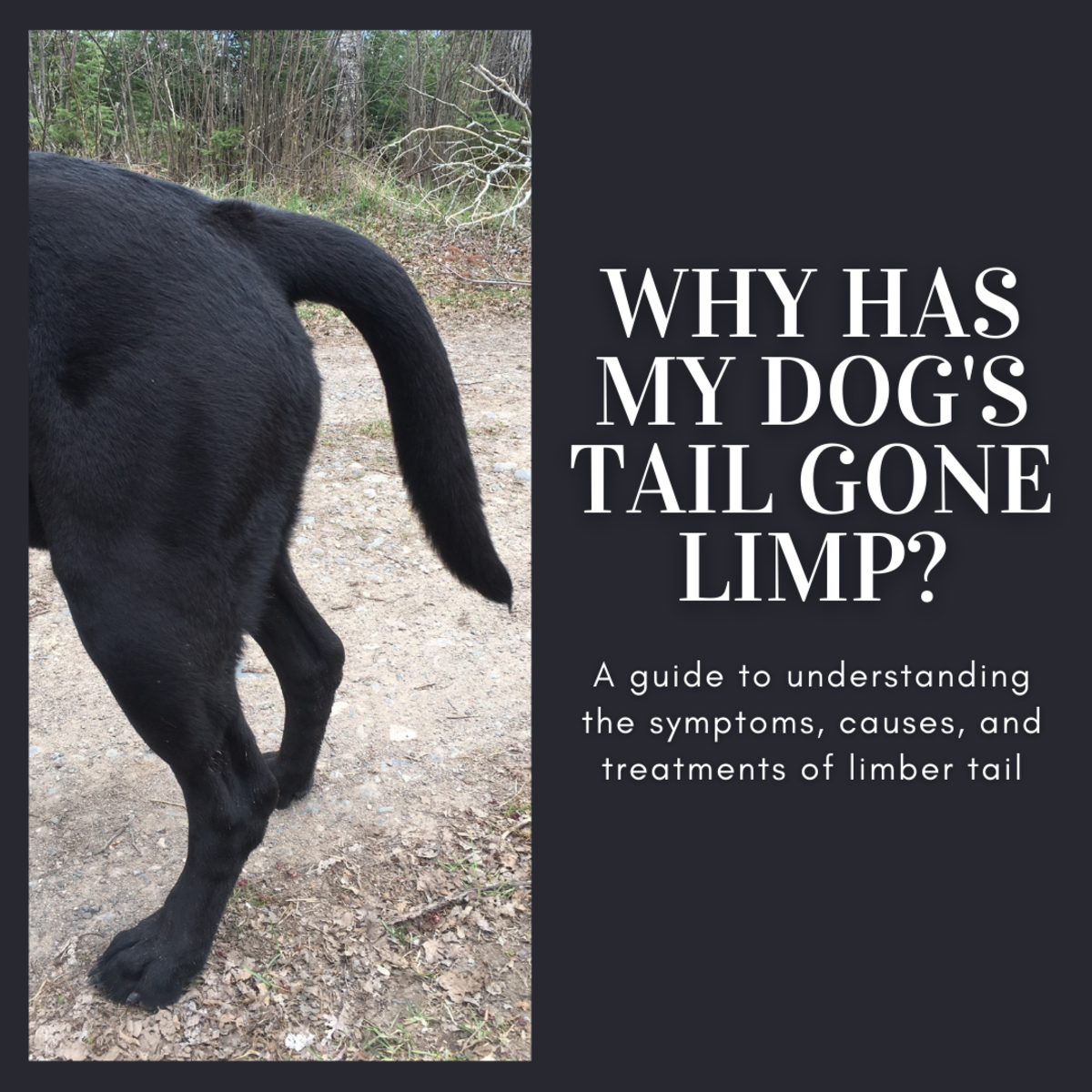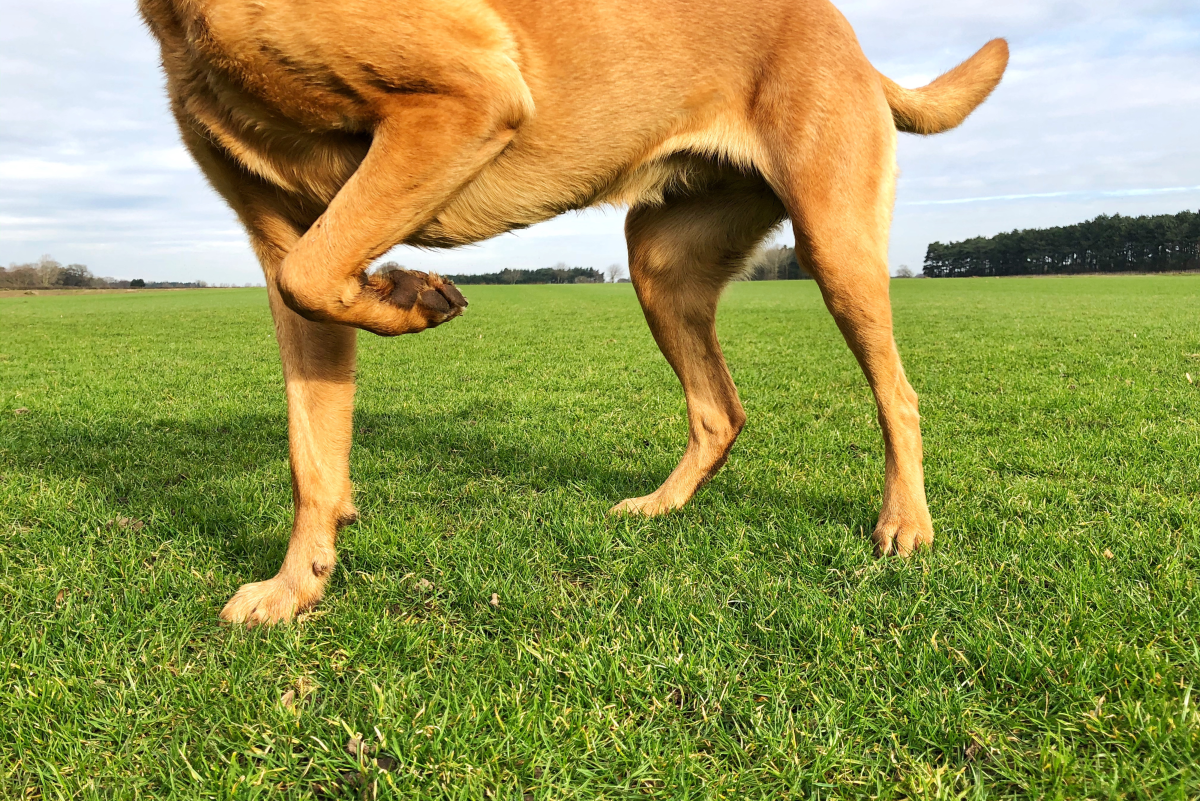Why It's Important to Spay Your Dog: A Personal Testimony on Pyometra

A pet health emergency
If you are a pet owner, you should be well-acquainted with your vet. Not only do animals need regular wellness checkups and vaccinations, but this person can be your greatest resource and ally in the event of a crisis.
My vet knows me well -- right now I have four dogs and a cat, but have brought countless critters to him over the years for all manner of aid, whether they were foundlings or my own precious pets. He also knows that I generally do not overreact to problems and can handle many first aid and illness situations by myself -- at least to some extent. When he got a call from me minutes after opening the office one morning with the news that I had an extremely sick dog, he knew something must be dreadfully wrong.
Ding was always a happy, healthy Beagle/Australian Shepherd cross. She was a little overweight, but generally active and loved her human dearly. One day, I noticed Ding looking just a little bit less peppy than usual and mentioned to my then-significant other that his dog might be sick. She looked like maybe she'd eaten something that didn't agree with her, and I decided to watch her to make sure she didn't get any worse or have additional issues in the house. That was Saturday.
On Sunday, Ding lazed about the house, laying on her side most of the day. She followed on her human's heels, but with droopy tail and looking definitely sick. I tried calling the vet on his off-duty line to get his take on the dog's change in behavior, but got no reply on his only day off. Ding didn't look sick enough to warrant much alarm, just out-of-sorts, so I didn't call either of the two other vets in town. I prefer to talk to the one I know and trust.
Monday. I wake up in the morning, get a drink of water, then call the dogs to go outside for their morning potty break. Three dogs come running. Curious, I pop my head back into the living room and Ding is still laying on her side in her favorite sleeping spot. I call her name. No response -- not even a tail wag. Suddenly certain that I had a dead dog on my hands, I cautiously moved to her side and called her name again. She was still breathing. Her breath came very hot and her nose was dry and leathery. At my touch she opened one eye just enough to see who was there, then closed it again. I checked the clock; the vet would be opening his door in ten minutes. That was probably the longest ten minutes of my life.
"I'm sorry, I don't have any time for her today, I'm completely booked." the vet tells me. "Sir, trust me, she needs to be looked at today." At my insistence, he finally relented and said that if I believed it really was an emergency, then it must be. He told me that I could bring her in and leave her in one of the kennels there and he would take a look if he had time.
The vet's office is six blocks from my house in a rural area. I got the call-back before I reached home. He knew the problem and needed my permission to confirm his diagnosis with a blood test, and then permission to proceed with the necessary measures to save the dog's life.
What caused this perfectly healthy dog to be sitting on death's doorstep with hardly any warning?
A word on pet overpopulation
It's not just about avoiding puppies
My then-significant other and I had been together for five years. When I moved in, my two dogs came with me to join his two dogs. I had some concern that his dogs weren't fixed. Dozer had been rescued from an acquaintance as a puppy. His previous owners had planned on putting him down after finding out just how much work it is to raise a puppy. He'd never been neutered. Ding was Nate's first dog ever that he had adopted from the local shelter a couple years before. She had just come to the shelter the night before he visited, and hadn't been spayed yet. The shelter was overcrowded. The lady who ran it told him he could adopt the dog, but that he would have to get her spayed. It was only a verbal agreement and he never followed through.
Growing up in a pet-free home, I suppose it's not surprising that this dog owner never heard about the importance of spaying and neutering. He also didn't realize the extent of the horrible pet overpopulation problem in the US. Whenever I tried to talk to him about getting his dogs fixed, the excuses were ready -- "It's too expensive." "He's too dumb to know what to do anyway." "She never gets loose, so I don't have to worry about puppies." On it went.
He also told me that he would like to have one of Ding's puppies for his next dog after she was gone, and wanted to breed her once before having her spayed. I tried telling him this was a very bad idea, explaining the importance of genetic testing and responsible breeding, as well as finding permanent homes for the puppies before any breeding. This, followed by my opinion that intentionally bringing cross-bred puppies into the world that would either end up in a shelter or take the place of shelter dogs in a home wasn't right. Ding's current age of about four years old was too old to subject her to her first litter anyway. There are many wonderful dogs out there needing homes, and he'd be sure to find another great dog after Ding died of old age. All to no avail.
Next, I started in on the health implications of unaltered dogs. I explained all the things that could go wrong that wouldn't if she were spayed -- still nothing.
Back to the story...
On the morning in question, I carried Ding's near-lifeless body into the vet's office. He swiftly deduced that she had an infection. With the bit of information that she was not spayed, he knew exactly what caused her condition. The cure was simple -- he'd have to do an emergency spaying.
Ding had gotten an infection in her uterus possibly days before her emergency vet visit. There are a number of things that could have caused the infection. When I went to pick her up later that day, Ding was alert and moving as easily as her new stitches would let her.
The vet pulled me aside for an explanation of how I came to have an unaltered dog, knowing that I wouldn't have voluntarily neglected to have the operation. He then told me that Ding's uterus weighed an astounding 3.5 pounds when he removed it -- in a 40-pound dog. It could have easily ruptured at any time, killing her instantly.
Unfortunately, this dog could have easily been spared her pain and brush with death by a very simple procedure. Any dog that is not intended for breeding should get the procedure, and breeding should not be undertaken lightly.
Spaying is, by far, cheaper than an unwanted litter of puppies or an emergency vet visit. It is cheaper than paying for puppy shots, prenatal and postnatal care for the mother, and doing the due diligence necessary to find the pups good homes. It's certainly cheaper to a municipality than adding more dogs into a shelter, and could save the lives of an equal number of dogs by simply choosing not to bring more puppies into the world.
Some great information and Q&A about pyometra. WARNING: It shows the actual surgery
- Solutions to Unwanted Dogs in Shelters
Millions of dogs are euthanized in shelters every year. With a little better education and understanding, that number could easily drop. - Selecting the Right Dog for You
This dog was returned to the local shelter numerous times thanks to poor matching So you're getting ready to get a new dog - great! - but if you're a new dog owner or haven't been satisfied with your canine companion in the past you probably have... - Acquiring Dogs: Adopt or Purchase?
Should you adopt or purchase your next dog? Here are some things to consider when trying to decide between rescuing a dog from a shelter or purchasing a dog from a breeder. In addition, there are some things you can do to make sure that your purchase - The Cost of Ownership: What You Owe to Your Pet
Having worked with animals most of my life I'm constantly surprised at how easily many people enter into a big commitment...specifically, adopting a new pet. Thinking back I can remember many summer days sitting in front of the local grocery store... - Hybrid Dog Breeds: Facts You Should Know
Facts on hybrid dog breeds or designer dog breeds. Designer dogs are the source of much controversy, but what are they? What should you know before buying a hybrid puppy?








